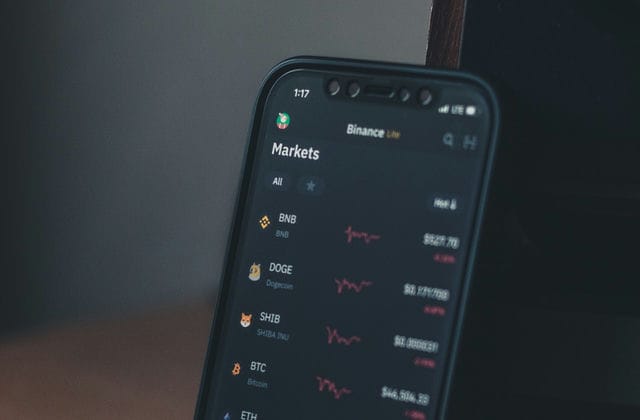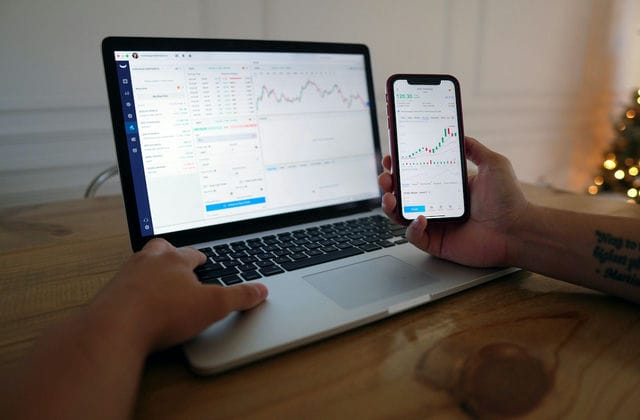For 60 years, Buffett has been preaching a simple investment philosophy: you buy a good stock, don't sell it lightly, and then wait for the price to rise.
But on this issue, I actually believe more in the words of Warren Buffett’s partner Charlie Munger, “Investing is not easy at all, and anyone who thinks investing is easy is an idiot.”
So this also leads us to today's theme:
Everyone knows that you can make money by holding stocks for a long time, but why can't you hold the stocks in your hand?
1、In the market, frequent transactions are more humane
Getting rich overnight is always the most popular story in the stock market:
In the market, the traders known as the "god of stocks" can accurately judge the bottom of the stock price and decisively buy the bottom of the stock price. Later, within 5-10 trading days (about 1-2 weeks), the stock price doubled sharply, and the god of stocks can accurately identify the top, so it is safe to escape from the top.
In fact, most retail investors enter this market with the sole purpose of "getting rich overnight" - that is, although this story is short, it can outline the typical characteristics of retail investors, including: (1) expectations of the market; (2) "High requirements" for their own operations, and (3) the ultimate expected return on investment target.
Crucially, the actual probability of such a myth is extremely low, and I'm afraid it will not happen once in my life; What's worse, such a very low probability will in turn make investors more inclined to trade frequently. Its deep psychological implication is: although this time is not good, the next time my brother may catch it.
Interestingly, we observed that many investors, when they first entered the market, only aimed to obtain a long-term stable market average return (in the long run, the market average return of the stock market will be at least higher than that of financial management). However, the story of overnight wealth spread too much, which formed a special "market aura".
This market aura is so strong that individual investors can't compete with it at all. As a result, rational investors also turn to regard their investment principal as a "bet" and start to bet constantly in the market in order to obtain investment returns that can be boasted about.
The behavior of investors will affect the market, but the market will also affect the behavior of investors in turn. For this, Soros once proposed a concept, that is, the famous "market reflexivity".
Another example is when someone asked Buffett: "Compared with living on Wall Street, what's the advantage of living in a remote small city like Omaha?"
Buffett's answer is:
I think the best way to think about investment is to stay alone in the room and think quietly - if that doesn't work, no other way will work. In any market like environment, you are easily affected and react excessively. Wall Street is a typical market environment. On Wall Street, you don't think you can do anything every day... In an environment where people call back and forth for quotations every five minutes, and where other people always put various reports in front of you, it is difficult to do nothing. Generally speaking, Wall Street makes money by tossing and turning, while we make money by not tossing and turning.

2、You don't know what you bought
Peter Lynch once said an impressive sentence, "People will spend two and a half hours to study the differences between microwave ovens of different brands, but only invest in stocks in less than five minutes".
Imagine a scene like this: you are holding a box in your hand, and you don't know what is inside the box, but you can constantly see the real-time market quotation for this thing, sometimes up 5%, sometimes down 8% - so when should you sell this thing?
You don't use it to embarrass me, and I won't embarrass you - because no one knows except God.
This is the reason why many investors cannot hold stocks for a long time. If you don't know what you buy, you can't hold it in a volatile market.
If we have the most important suggestion for investors, this item will be on the list anyway, that is:
Investors should consider stocks as a long-term asset allocation - in fact, this simple change will eventually bring you great wealth.
This is how we view stock investment: with the accumulation of wealth, investors will gradually have some rich funds to "settle", in addition to savings and real estate, and stock is one of the important resettlement channels (this is what financial people call "asset allocation").
Asset allocation is not as big as expected: imagine that a company white-collar worker gets a salary every month. Except for housing loans, daily consumption and some savings, if there is still surplus capital, then there is a demand for asset allocation, and the demand for asset allocation will continue to occur once a month.
To regard the stock market as a long-term asset allocation rather than a short-term tool for "getting rich overnight" will enable investors to finally achieve considerable long-term returns.
This is because the so-called asset allocation is that you want to put money on it anyway. Since this is the case, why do you have to worry about it?
In this sense, the assets allocated by investors to the stock market are not substantially different from those allocated to real estate - no one will be eager to sell their house because their house has risen (or fallen) by 10%; Similarly, when you regard stocks as an asset allocation (rather than a bet), investors will find that they can finally take this asset at ease.




























